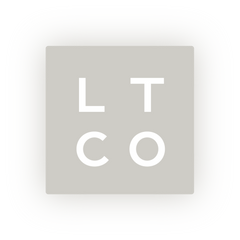IWD: In Conversation with Wendy Brooks
An inspiration to many, Wendy Brooks is a powerful multihyphernate as a mother, grandmother, advocate of inclusivity and a successful businesswoman. In celebration of International Women’s Day, we met with Wendy to discuss this year’s theme, Count Her In, Invest in Women, Accelerate Progress. Wendy discusses with us her experience being a woman with a disability in business, and her challenges and hopes for the future for women not only in business but in recreation and leisure too.

Q: Please tell us, what is it like being a woman, a woman in business, and a woman with a disability, a mother of four [and a grandmother of eight]? Because I find it all very inspiring and impressive.
A: There have been challenges along the way as a woman in a leadership position.
I remember when I first got admitted to practice, and I phoned up a firm that I knew - at that stage I was having really serious mobility issues, and I was using a scooter to get around. The principal in the practice said to me, there's no way we'd be employing a disabled grandmother in a wheelchair! So I said, well, what about having a think about the skills that I have, and the experience I've had, but it was a flat no.
I ended up getting employed in another firm, which was great, and it was a terrific experience for me, but having mobility issues since I was in my 40s has been an incredible lesson in how difficult it is for women and for women with disabilities to really cut through, and to make a contribution, and to be the best they can possibly be. And I've had the added advantage of acquiring the disability later, so I had all the education beforehand, I had plenty of support around me, and still it was pretty challenging.
And at times I was overlooked, or looked through, or talked over because I was a woman, and I learned a lot of really hard lessons. I think I learned how to be assertive, and how to be assertive in a very polite way, but to not take a second position if I had something to say, you know, to make sure that it was said.
I've really learned that you have to give people a chance to contribute and have their voice when they're on boards and in leadership positions, and it's very hard for women to cut through in that environment.
It's always good to have a number of women on a board so that you can, so you're not in the, you're not in the minority and you are able to speak together and contribute together without being talked over.
Q: Australia recently released data reflecting the gender pay gap where they studied 5,000 companies, and the results, they weren't great, it said that 30 to 40% is still in favour of male employees.
How do you think we solve it, and what should be happening in the workplace, and also what do you do in your workplace?
A: I think that you can't have women in senior positions and women in leadership unless you allow for older women to participate in the workforce, because many women will take a few years out to have their children.
Women tend to be the ones in a family to take time out to nurture and bring up the little children, and then when they're ready to get back in, when they feel energised, there's a real prejudice to older women participating in the workforce. I've heard on a number of occasions; you just have to persevere and push through, but we also as a society are missing out on tremendous skills of women in their 40s and 50s who are considered to be too old to take leadership positions and too old to come back into a career and rekindle a career.
I think if I hadn't set up my own business, I wouldn't have had the opportunities that I've had because there are too many barriers to women in their 40s and 50s actually fully participating in the workforce.
The stats are telling us that in the last 30 years, the proportion of women working full-time who are over 30, that proportion of women working full-time hasn't changed in 30 years. You can't expect women to be earning the same as men if they're not working full-time and they're not being considered for senior positions.
We've got to be more supportive of older women taking leadership positions and rekindling careers, perhaps completely new careers, in their 40s and 50s.
Age is no barrier. If you've got the skills and if you've got the enthusiasm and commitment, then come and work with us. It's very important.
Q: I always love ending with some hope. So what do you hope for women in the next year and the next decade?
A: I think that it's slow, the change is slow, but there's an increased understanding and acceptance that women have a tremendously important part to play in our society.
Australia's behind Europe and even America in allowing full participation of women.
Yesterday morning, as I went for my usual one-hour jog, I was jogging around the Opera House, and a massive group of young women came past jogging, and I said to them, how come there are so many of you running? And they said, oh, we're part of She Runs!
As I took their photo they said, “jogging is a feminist issue”. And I agree.
I think that women feel that they can't do a whole lot of things. And I think the positive and the hopeful thing is that women are starting to say, hang on, we want to be part of this.
We want to fully participate in recreation and in exercise and in business. So I see the change, but it's much slower than I would have hoped.


